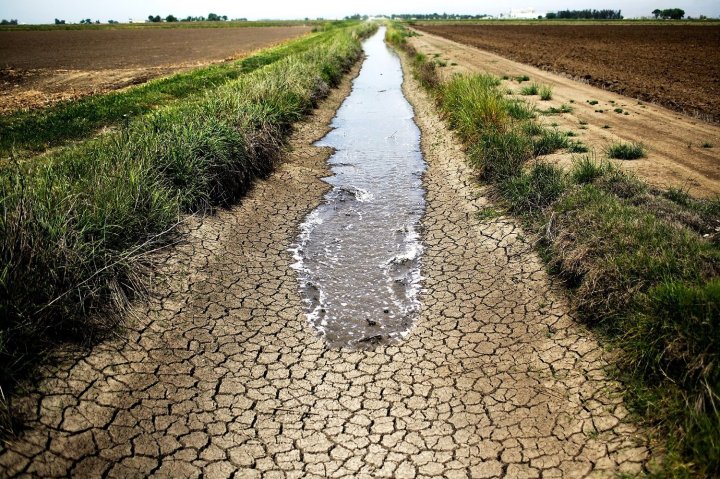SPONSORED CONTENT
Old Mutual’s climate and decarbonization strategy focuses on real economic outcomes while doing good for the communities it serves.

The United Nations Climate Change Conference, or COP 27, that took place in Egypt, placed the spotlight squarely on the need for all of us to do more to avoid the disastrous consequences of an overheated planet.
Issues of finance as well as accountability and responsibility have all been placed in the spotlight. Some progress has been made to ensure the right holistic steps are taken with a clear understanding that the time for talking is over. The stakes are especially high in Africa, where too little action will lead to even more poverty and economic stagnation.
In fact, in Sub-Saharan Africa the gross domestic product (GDP) could be reduced by up to three percent by 2050. The Foreign Policy Research Institute’s Africa Program says climate change threatens the livelihoods of over 100 million people living in extreme poverty in Africa. Global warming is expected to melt Africa’s remaining glaciers in the next few decades, and the reduction in water essential to agricultural production will create food insecurity, poverty, and population displacement.
Led by President Ramaphosa, South Africa attended COP27 to launch the new Just Energy Transition Investment Plan (JET IP) for South Africa, bolstered by an $8.5 billion investment in first-round financing from the developed world. But this is only the start as financial requirements over five years are estimated at a staggering $98 billion.
The message coming out of Egypt is loud and clear – the planet needs continuous, urgent, and holistic action by all role-players. As a collective, we all need to step the game up considerably. African leaders at COP27 in Egypt have rightly asked for a more tailored and inclusive approach for the continent.
While we’ve seen multiple commitments from governments and intergovernmental bodies, a clear ‘financing gap’ still exists. Although the negotiations at COP27 this past week have progressed, tensions over who pays for climate change remain – from scaling finance for mitigation and adaptation to compensating for climate-related damages. These discussions must remain front and centre.
It is clear, corporates and capital markets will and must play a critical role in mobilising the scale of capital required to fund a just transition, reach net zero and adapt to the global temperature increases already locked in.
What is coming out of the COP27 discussions is that there will be a significant amount of investment into SA, which is extremely positive. We are already seeing noteworthy innovations in green finance taking place locally and internationally to meet this demand. The reality is sustainability is now business as usual for a significant number of African entities.
Old Mutual is a significant contributor to these climate/sustainability discussions and in the rollout of solutions to come. As a responsible global citizen, Old Mutual recognizes the interconnectivity between the economic, social, and environmental systems we operate in. The company fully understands the global urgency to transform our collective growth path to be more socially inclusive, low carbon, and resource efficient.
We, however, also see climate change as the key environmental risk facing our Group as it poses a threat to the sustainability of our business operations, the communities, and countries we operate in.
Our business response to sustainability is therefore shaped by our core business activities. We have a deep commitment to act responsibly and treat all stakeholders fairly while making a positive impact in the communities and regions we operate within. This is not a tick-box exercise. We aim to be partners and leaders in the fight against climate change. We welcome the different ideas aimed at achieving this, thanks to the commitments made at COP27.
Although Old Mutual’s direct environmental footprint is significantly smaller than the indirect impact of our investment activities, we recognize our responsibility to understand and manage our carbon footprint. We are responding to the challenges posed by climate change by focusing on the decarbonisation of our operational footprint and our proprietary and customer investment portfolios.
Thanks to early action we are pleased that our total operational carbon emissions have been reduced by 23% since 2019. We also have R150.5 billion of assets under management invested in the Green Economy, with R26.4 billion of proprietary assets invested in renewable energy.
Our climate report also shows that our investment properties contribute 77% of our emissions, with 15% attributable to our employee-occupied buildings and 4% to transmission and distribution losses.
Our biggest contribution to addressing climate change is in the way we invest the capital entrusted to us by our customers.
Our approach towards addressing the systemic risk posed by climate change is therefore embedded as part of our overall Asset Owner Responsible Investment strategy. We have developed our climate change investment objectives with consideration of the needs, limitations, and expectations of our internal and external stakeholders.
The Group is committed to decarbonising our proprietary investment portfolios by 2050. To do this we are prioritising thermal coal investment holdings as a material ESG issue and are implementing a hard exclusion intercession for new thermal coal production facilities and new coal-fired power plants.
We are investing in renewable energy and low-carbon technologies and contributing towards real economic outcomes. In our view, responsible decarbonisation must be driven through collaboration and advocacy efforts, while championing the development and issuance of green bonds and the establishment of low-carbon investment benchmarks.
We will continue to support investee companies on their transition journeys and are committed to enhancing the role of influence that we play as an asset owner to actively engage our appointed asset managers in stewarding the companies in which we invest.
With the stakes as high as they are, Old Mutual will continue to act responsibly to effect the just energy transition. This includes supporting the imperatives of a just transition of the workforce and the creation of decent work and quality jobs according to nationally defined development priorities provided by the Paris Agreement.
Our stakeholder-focused approach ensures that we have a common understanding of the areas where we can make a measurable impact.
We are a signatory to the Task Force on Climate-related Financial Disclosures (TCFD) and we have published our inaugural 2021 Climate Report.
Our intention is to keep highlighting the benefits of clean energy and unearth the unknown about solar, the power ecosystem on the planet. We are already making steady progress. For instance, Old Mutual Investment Group (OMIG) has been named Best ESG Responsible Investor Africa 2022, for the second year in a row.
We have been serving customers for 177 years and will continue to harness our trusted brand and distribution scale to continue to do good in one of the biggest fights in our history – to save the planet and people from climate change. DM/BM
















